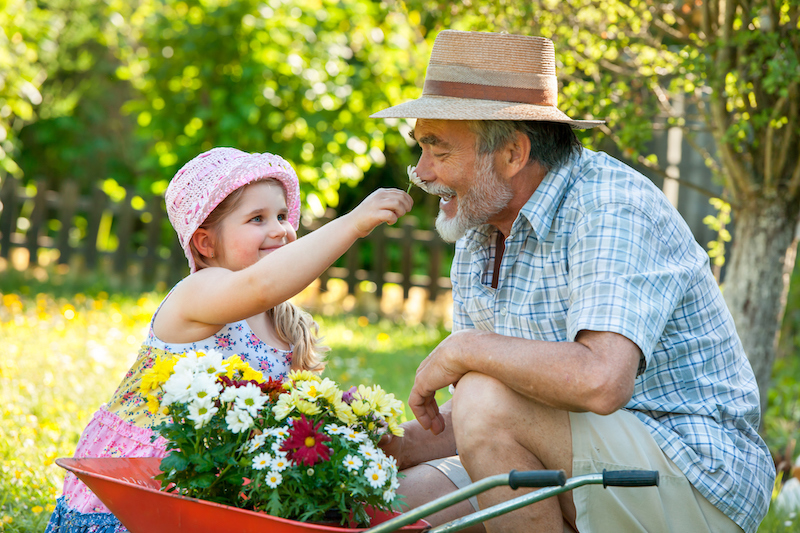When you were born, you could feel your parents’ loving touch and be comforted by the soothing sounds they made. As you grew older, they introduced you to a new world and celebrated milestones with you. Many of the valuable things you learned from them will never leave you, and you probably have passed many of these lessons on to your own children.
Family relationships last a lifetime and continue to be a source of comfort, learning, and celebration as your parents become senior adults.
The Challenges of Distance and Difference
Today, families are more geographically scattered and busier than ever. Not only are families farther apart physically, between generations there is a widening gap in communications. While social media has become the go-to communication resource for younger generations, it can be intimidating and confusing for some seniors.
Intergenerational Activites Benefit All Generations
Adult children can learn life lessons from their loved ones, who have experienced many defeats and triumphs over the years. It is a perspective gained by time, but it can be shared by those willing to listen. The benefit is that the “ups and downs” of daily living are, in this long view, put into proper context.
People of all ages need a sense of belonging; a foundation of beliefs, relationships, associations, and purpose that only families can produce. While family members may have divergent opinions, tastes, and even beliefs, they still benefit from the memories, lessons, and interactions between them. Sharing family history, traditions, and stories keeps this sense of belonging alive.
Today, seniors are living longer in their homes than ever before. While this means they are more comfortable in familiar surroundings, there is also the danger of them becoming isolated and lonely. Physical care can be provided by professionals in the absence of family caregivers, but emotional involvement—the connection with loved ones—is vitally important for seniors. Studies show that seniors tend to decline physically and cognitively without that involvement. In fact, people age 60 and older who report feelings of loneliness have a 45-percent higher risk of death than those who do not feel lonely.
For children, spending time with older adults can provide improved self-esteem, social skills, healthier attitudes, and an opportunity to learn respect and admiration for an older generation. Grandparents, with their longer perspective and experience, understand there are things parents worry about in their children that are not as consequential as the parents believe—not to mention they can spend time with the grandkids fresh rather than frazzled.
Ways to Connect
Generations can connect as they always have, working, playing, talking, and laughing together. Here are some ideas:
- Tend a garden
- Listen to music
- Review a photo album
- Read a book together
- Go to a movie
- Eat at a restaurant
- Picnic in a park
- Take a class together
- Take a walk
- Cook/share recipes
- Talk over cookies and coffee
- Plan a family get together
- Birthday, anniversary, special occasion celebrations
- No-occasion celebrations
Going Home
In a world that is sometimes frenetic, disconnected, and confusing, a family can still be a source of comfort, support, and learning across all its generations.
It’s been said you can never go home again. But as Maya Angelou once said, “The truth is you can never leave home, so it’s all right.”
Find more senior health and wellness tips on Bethesda’s blog.
| Whether in independent living, assisted living, memory care, or skilled nursing, Bethesda offers the right amenities, services, programming, and staff to make every day full of purpose. See for yourself and tour our independent living communities, including Bethesda Barclay House – Clayton, Bethesda Gardens – Kirkwood, Bethesda Orchard – Webster Groves, Bethesda Terrace – South County, Village North Retirement Community – Florissant, and The Oaks at Bethesda Villas – Kirkwood/Webster. |
Want to find out more?
If you’d like to stay up to date with Bethesda Health Group, sign up here to receive our blog and newsletters!
"*" indicates required fields
Related Articles
Want to find out more?
If you’d like to stay up to date with Bethesda Health Group, sign up here to receive our blog and newsletters!
"*" indicates required fields



